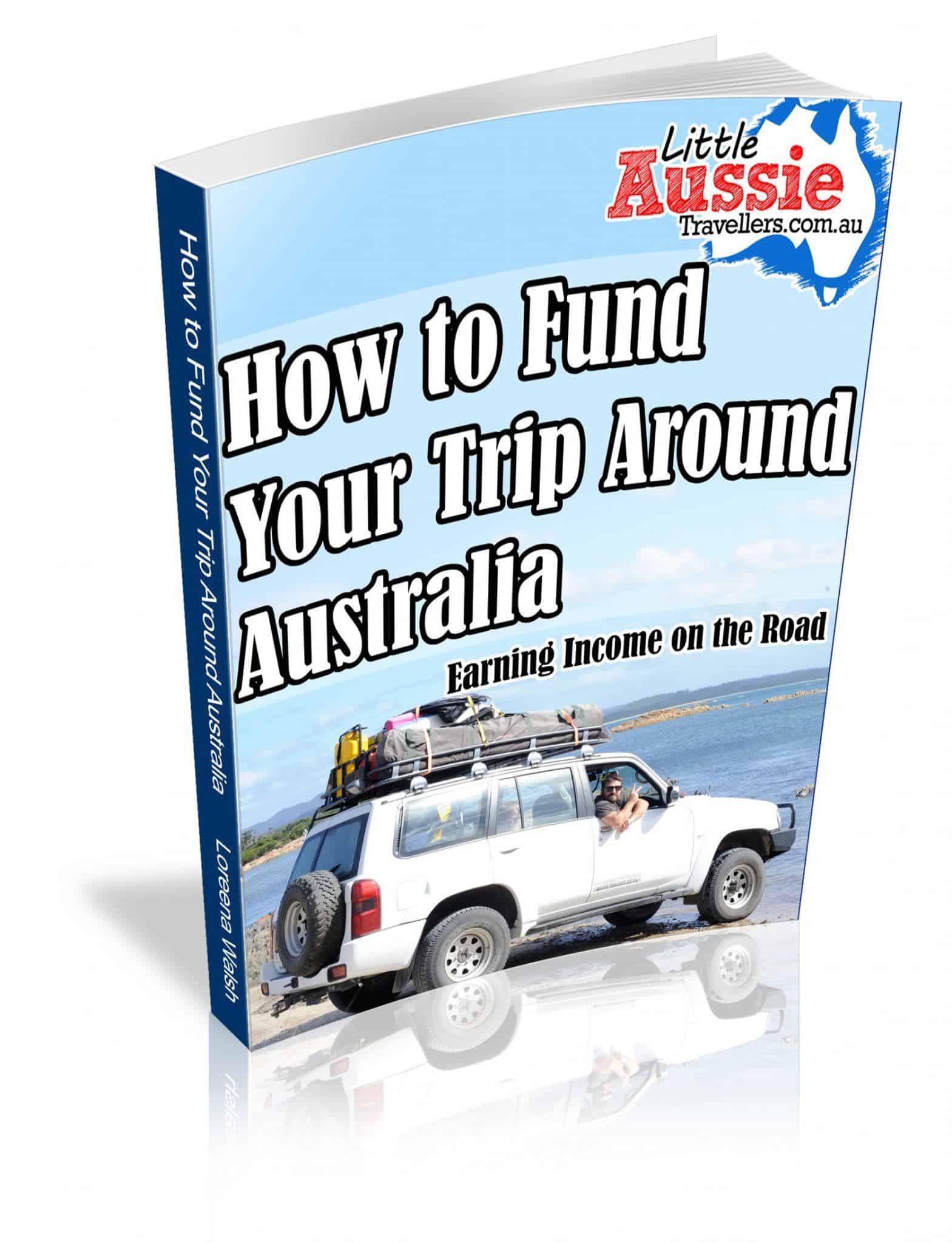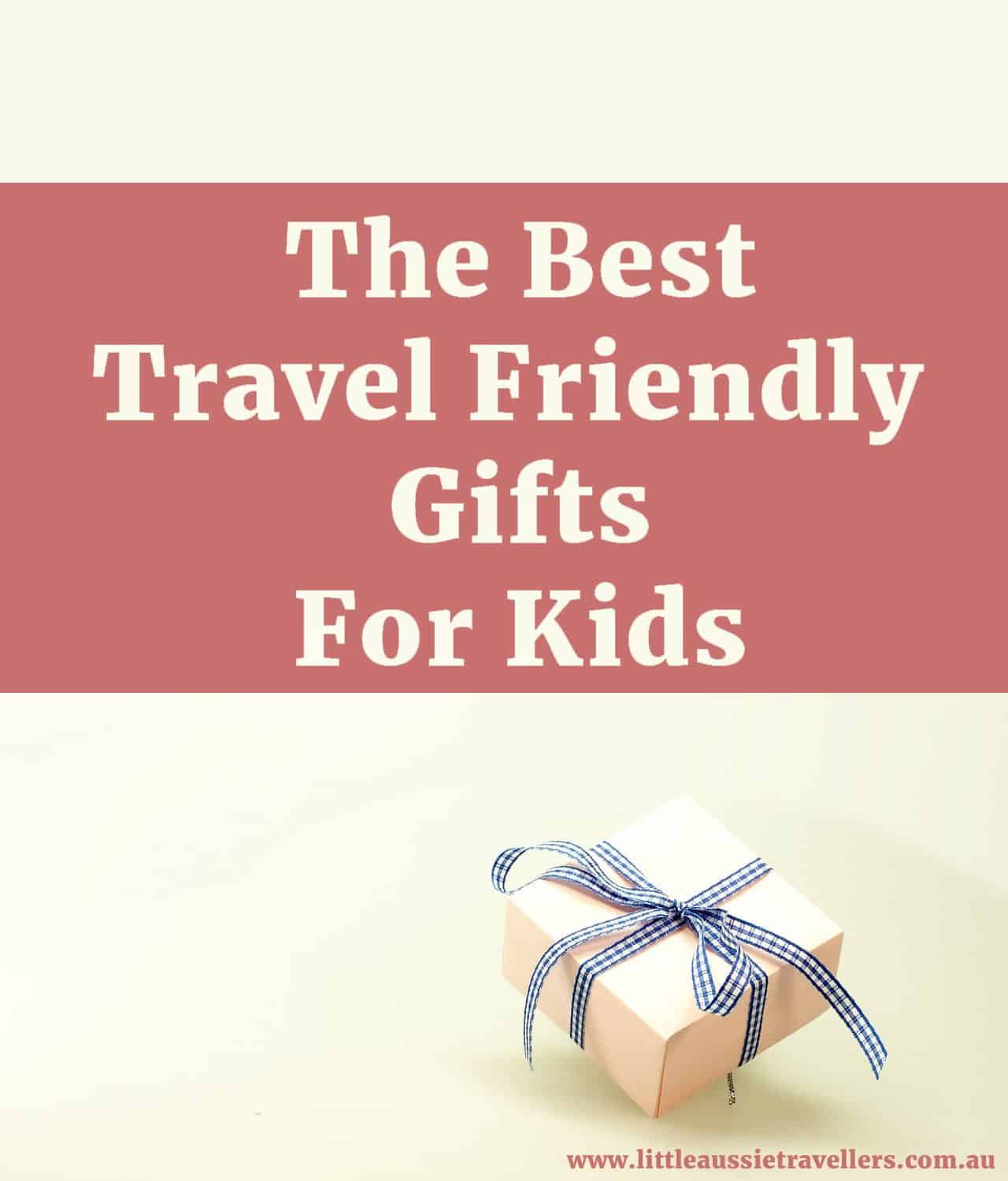
by Loreena Walsh | Australian Travel News, Family Travel, Featured Posts, Gear Guide
There is so much excitement for kids who are heading off to travel, and often friends and family want to buy farewell gifts for kids or their parents to send them off. What many people don’t realise though, is that space is really limited for travelling families, and weight is also a constant juggle – there’s only so much that is legally able to be carried, so buying thoughtful gifts is really lovely, but we’ve got some great tips and ideas for the best travel gifts for kids or families who are about to head off on their trip around Australia.
I’ve decided to update this post for 2019, as now our children are older, things have changed. A lot. Both of my teenagers are now well into skincare & makeup for example, so something for my daughter like a gorgeous Beauty Advent Calendar would be practical and fun. So would I recommend the same gifts for travelling kids as I did when the kids were smaller? Some of them, but there are some other ideas I think are great options, so I’ve added a few more.
We all know there are long car rides, and hours of down time when we’re out on the road travelling, so figet toys are the perfect solution to keep kids occupied.
Fidget toys are generally small, compact and easy to take on the road without taking up too much of your valuable packing space. Brands such as Tangle fidget toys and Speks fidget and manipulative toys for children and adults are such a great solution.
If you haven’t looked at these types of toys for kids, they’re a great option for packing small and light and still having fun activities on the road.
2. Buy A Great Travel Journal for Kids or Adults.
This is still one of the best travelling gifts for kids. It’s actually the perfect travel gift idea for the entire family!.
It doesn’t matter if it’s Mum and Dad, or for the kids; travel journals are the perfect way for travellers to capture all the treasured moments on their journey. From destinations that are loved, to special experiences, drawing pictures, writing stories, sticking postcards, dried leaves, dried flowers, adding photographs. Journals help to create a timeless keepsake that will be a treasured family item for many, many years to come.
One thing I realise about travel, is that while you’re there, in the action, soaking up the landscapes, the conversations, the ever-changing destinations, that you never think you’ll forget. There are parts of our trip that I can barely remember, but having a journal to look back on has ensured that I can re-live the moment, and it’s such a fabulous glimmer of joy reading and remembering the little things that happened along the way that were special to us!
3. Travel-Friendly Art & Craft Supplies.
Whether it’s to write in their journal, help with their schoolwork or send letters and pictures back home to friends and family, travelling kids will love art and craft supplies to take along with them. Watercolour paints are a great option as they aren’t as messy as other paint options and don’t take much to clean up.
Pencils and pens are perfect for writing, drawing and colouring, as are notebooks and writing paper, both of which will come in handy for keeping kids occupied on long journeys and if they want to jot down notes or create artwork to represent their travels.
For our children’s travel journals we began with an A5 folder, with loose inserts from Office Works. That way they could move pages around, add photos once we’d had them printed, brochures, keepsakes, and remove a page if they felt like they didn’t want to include it any more. They also used their art and craft supplies to send special pictures and letters home to family and friends. The gift of stamps is also a great idea if you’d like to receive a postcard from your little adventurers!
4. Binoculars Make Great Travel Gifts for Kids.
Binoculars are a great gift idea for kids who are travelling. The ability to spot things at a long distance will help kids feel immersed in their surroundings and see things they won’t otherwise be able to spot. Wildlife, interesting scenery, they’ll love the faraway goodies they’ll spot through their new binoculars.
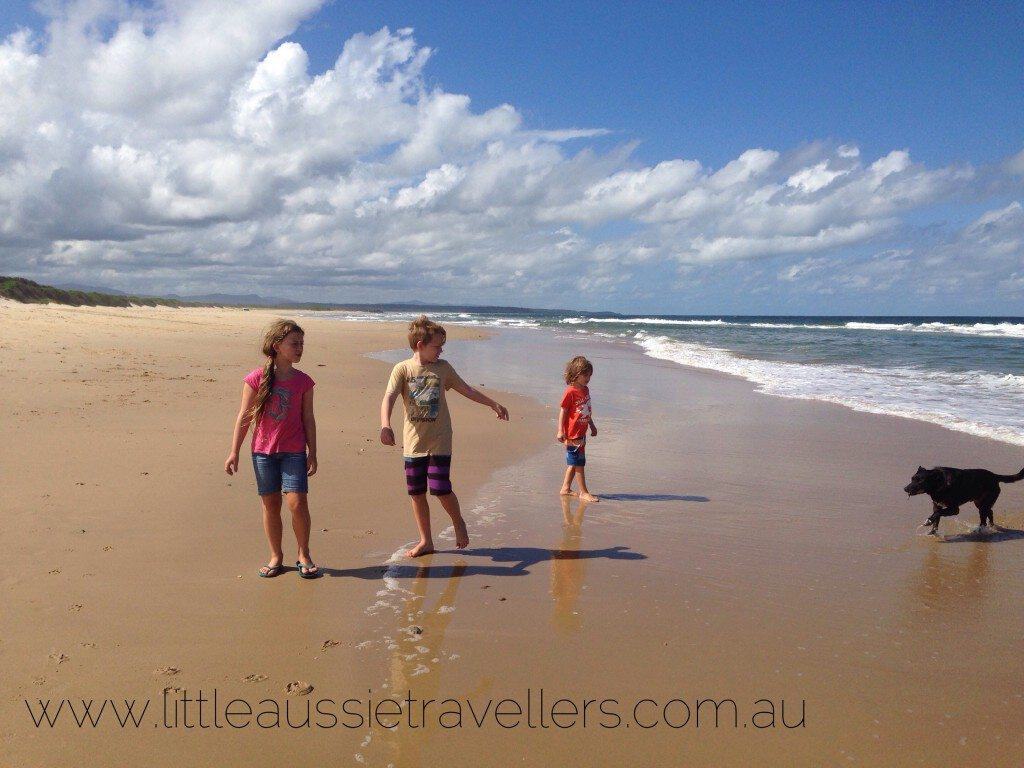
5. Compact & Multi-use Toy Ideas for Travelling Kids
One of the basic toys we considered a must-have when we hit the road was Lego. Not only is it a great toy for building things like we all know, it’s also a wonderful tool for learning maths too! Lego is great for solo play or group play and suitable for kids (and adults) of all ages. Other great ideas include block games like Jenga, the blocks for this game can not only be used to play but also double as building blocks or math blocks too. Marbles, decks of cards, Uno, travel versions of games like scrabble and battleship are all available too. Look for games and toys that are compact or can be taken out of their bulky boxes and easily stored.
6. Tech Gifts for Travelling Families
Depending on the ages of the children, cameras and other tech gadgets can work really well. For cameras, polaroids work well for adding scenic photos or selfies into travel journals, but digital cameras work well for capturing lots of photos and deciding what to print later. Expensive cameras aren’t necessary, just look for something of reasonable quality and the kids will love it. Cameras that are shock proof and waterproof would definitely be an ideal, although more expensive option. Ipods and Ipads are also a much loved travel gadget, as are iTunes gift cards a loved gift for kids who own these devices.
7. Everyday Necessities Especially For Older Children and Teens.
As I mentioned above, now are children are older, I reflect on the things that would make sense for tweens and teens to be gifted for travel. Personal care items are a wonderful gift idea for older kids. I mentioned Beauty Advent Calendars, and my daughter would absolutely adore a gift like this both when we were travelling or now we’re settled down. The bonus is that the items inside are compact in size and great for travelling.
For my son, who now shaves, shave gear, spare razors, cologne, all of this can be expensive to buy on the road in more remote places, so a little gift basket of goodies would be a fabulous idea.
Of course no matter what, gifts that come from the heart are always welcome by any family. When it comes to travel gifts for kids, If you think about items that kids can use, are small, compact and won’t just take up space, you’ll have happy kids and happy parents, and most importantly, happy, smiling travellers!
What about other special events like Mother’s Day gifting, Father’s Day gifting or even Christmas gift ideas for living on the road? We’ll cover those in another post soon.
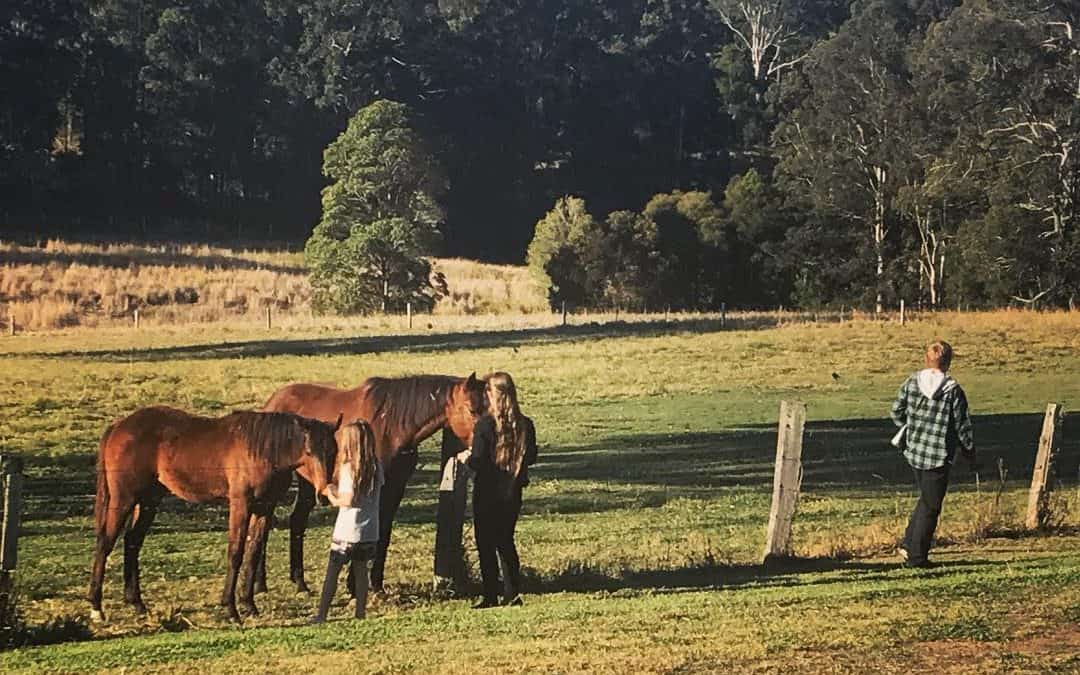
by Loreena Walsh | Featured Posts, Trip Planning, Uncategorized
It’s been a ridiculously long time since I’ve posted anything here. Truthfully, I’ve thought about closing this travel blog down many times, but the wanderer in me hates the thought of it disappearing altogether.
Every time I go to delete it from the internet, I remember the reason we started this travel site in the first place – to inspire ourselves and other families to get out and travel Australia with kids and pets in tow. Once we’d set our sights on the idea of full-time travel, we knew that if we could make it happen, then anyone could.
With hard work and dedication and a lot of stubborn determination, we achieved our goal of selling everything to travel Australia, and we had the most wonderful of family experiences along the way. Living on the road changed us from the depths of who we believed ourselves to be, right through to who we’ve since become. It was difficult to admit that full-time travel for us wasn’t going to be able to continue long term.
When life stands in your way, as we’ve learned over and over again, it’s best to pivot. We’d always had a dream of owning small acres, and we’d looked at so many options for re-settling including shared farming and even tiny homes. We realised that looking back wasn’t going to serve us in any positive way, and it was time to look forward, to focus on our family and our next big goal.
Why We Stopped Travelling Australia.
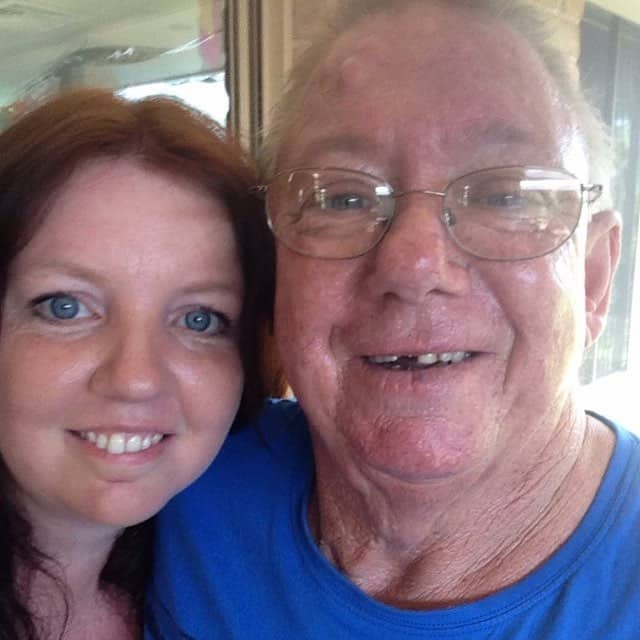 After we’d been on the road for around six months, Matt’s dad called, as he needed some respite. Matt’s grandmother developed severe dementia, it progressed quite rapidly, and so, instead of continuing on our way, we needed to stay put and help care for her.
After we’d been on the road for around six months, Matt’s dad called, as he needed some respite. Matt’s grandmother developed severe dementia, it progressed quite rapidly, and so, instead of continuing on our way, we needed to stay put and help care for her.
What was supposed to be a 2 week stop turned into almost 2 years. We sold our Jayco Swan and bought an old caravan to renovate – a project we’re still yet to finish.
It was during this time that the kids reconnected with their homeschool group, and as they catapulted toward teen years, it became very evident that developing friendships, bonds and connections was more important for them than travelling.
The decision was made to apply for a rental and re-settle. It took a long time for it to feel right, but the benefit of having left everything behind, and having shed my old self, was that I returned as a slightly braver person, keen to make connections.
In hindsight, after losing my dad suddenly about a year and a half ago, I’m so grateful we were home, and closer to him.
Goals To Have For A Life After Travel
Just like everyone’s travel style is different, everyone’s life goals are different. Before we left to travel Australia, we knew what our goal would be when we’d decided to stop – to buy a home on some acreage.
This goal seemed huge, even more out of our reach than travel ever felt, and yet we knew that somehow there was a rural property just waiting to become ours.
But stopping travel wouldn’t be easy, and life after travel would turn out to be even heavier than the emptiness that staying in one place inflicted on us.
It turned out that the next couple of years would be filled with Dementia, terminal illness, losing loved ones, caring for loved ones, losing friends and having to face our own mortality and that of everyone around us. It was a rough ride.
Losing loved ones was one of our motivations to travel originally. We knew that life was too short and we wanted to explore and spend quality time with our kids. Ironically it was losing my dad, Matt’s nan and one of my closest friends that drove our decision to settle down. All of a sudden life felt fragile, our children were craving connection and peers and they were growing out of early childhood and towards their teen years.. fast.
So we did what we could. Matt found a great paying job – this turned out to be a dance with the devil – it almost destroyed him, however the increased finances helped buy our dream home so it’s worth keeping that in perspective. We found a cheap but nice rental, and we went about re-establishing our lives, reconnecting with old friends and saving towards our dream home. Just over a year ago we achieved our dream, and now we’re creating new memories with friends, family and the kid’s friends on 7 acres that we truly adore.
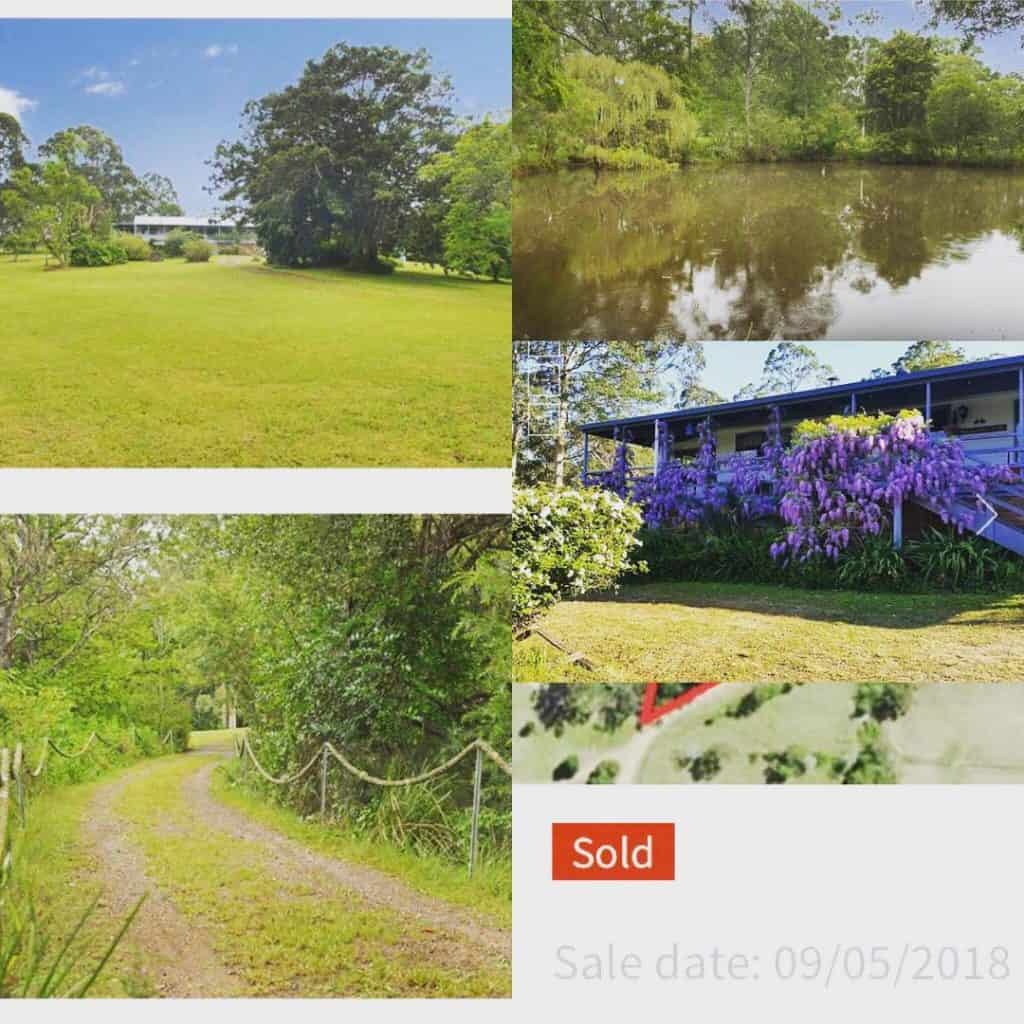
Things A Travel Lifestyle Taught Me
All I can truly say is that I’ve learned that life comes in seasons. Is it worth throwing everything, money, time and effort towards travelling with kids? The big resounding answer is YES YES YES!
I wouldn’t change having travelled for the world! But I also love that we’ve now settled back down.
I’m going to keep this site online and might even add things to it. I might bring on some guest posters, because as the grief of losing so many loved ones settles, and the memories of travelling get more dim, the passion to inspire others to do the same is still as strong as ever.
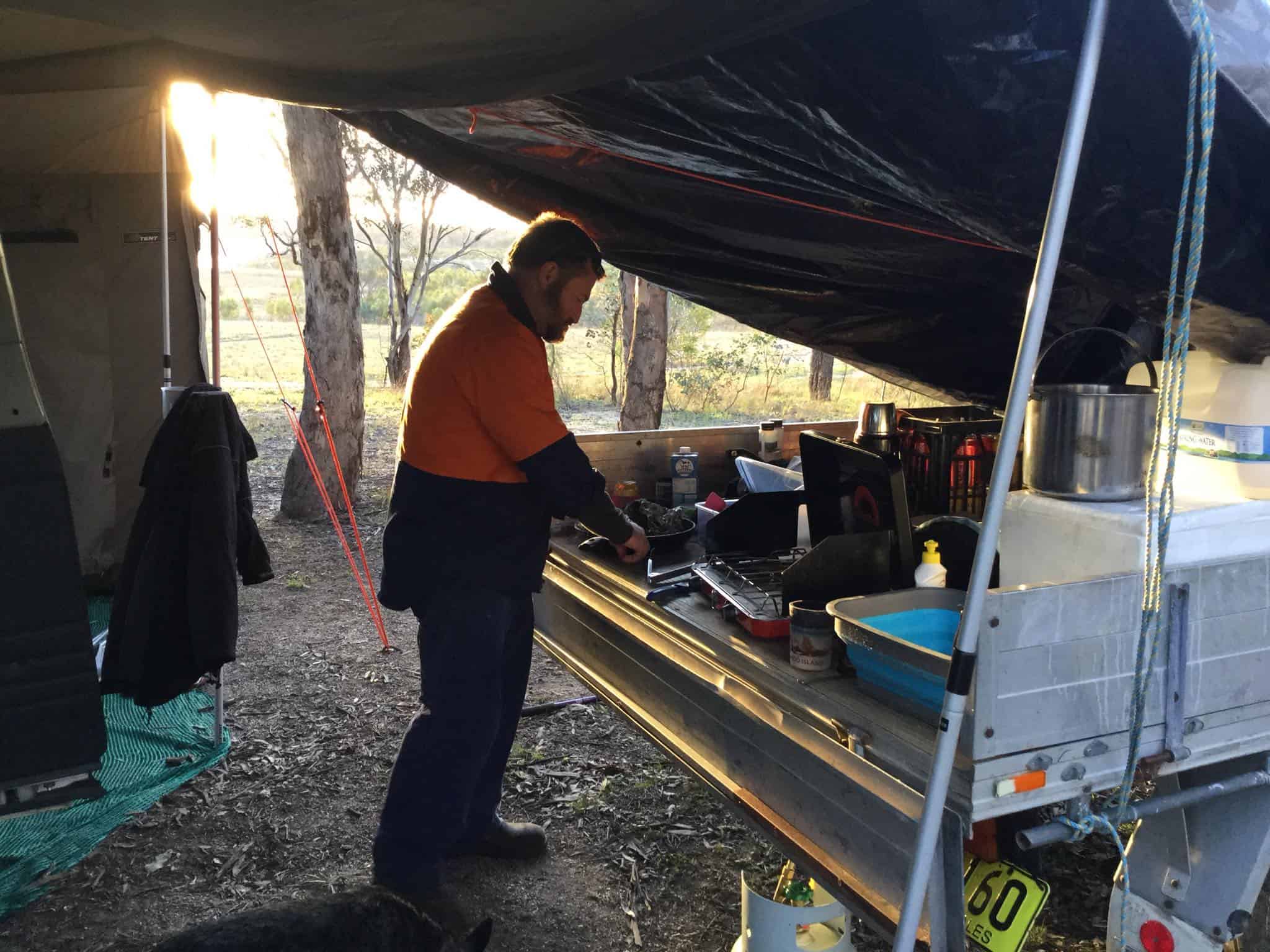
by Loreena Walsh | Featured Posts, Finances & Obligations, Slider Features, Trip Planning
Financial questions like ‘How much does it cost to travel Australia?” are the most common topic we’re asked about from our community and readers, so we thought it might be useful to give some idea of what it could possibly cost you to do a lap around Oz.
Sadly, this question just like many others related to travelling is another “how long is a piece of string” question; one that is highly dependent on your own personal travel choices and desires. For that reason, I can’t tell you exactly how much it costs to travel Australia, but I can give some insight into the typical costs and expenses you’re likely to face on the road, and how some of your choices may help to stretch your budget or swallow it up with great speed.
The average cost we see thrown around tends to be $100 per day, lots of families spend more than this and lots spend less, it depends on your setup and how luxurious or frugal you’d like your travel to be.
If you haven’t started to plan your lap of Australia, then go here first for some insight.
The Biggest Expenses You’ll Face, Travelling Australia.
Your biggest expense on the road is usually one of three things:
For Us The Biggest Expense When Travelling Australia Is Fuel.
That’s because our chosen travel vehicle for our trip was a Nissan Patrol. It’s a great four wheel drive and will get us almost anywhere and it has a very generous tow limit (one of the best on the market), the pay-off for this, is that it is a heavy vehicle, and it likes to drink A LOT of diesel. So, for us, I think at the moment we are getting about 700kms to our 110 litre dual tanks. This can vary on how much of the time we are towing, and the terrain we are towing in. Without towing, we get over 800kms to our dual tanks, and lately, it’s been costing around $140-$160 to fill up. Of course, if we’re in smaller towns or remote areas, diesel is going to cost us a lot more and the cost of filling both tanks is likely to head to $200+.
So, this means for us, if we want or need to move long distances quickly, we’re going to pay the price with a large fuel bill. We spread this large expense out by travelling relatively slowly, and shorter distances at a time.
Free Camping Keeps Accommodation Costs Down When Doing A Lap Of Aus.
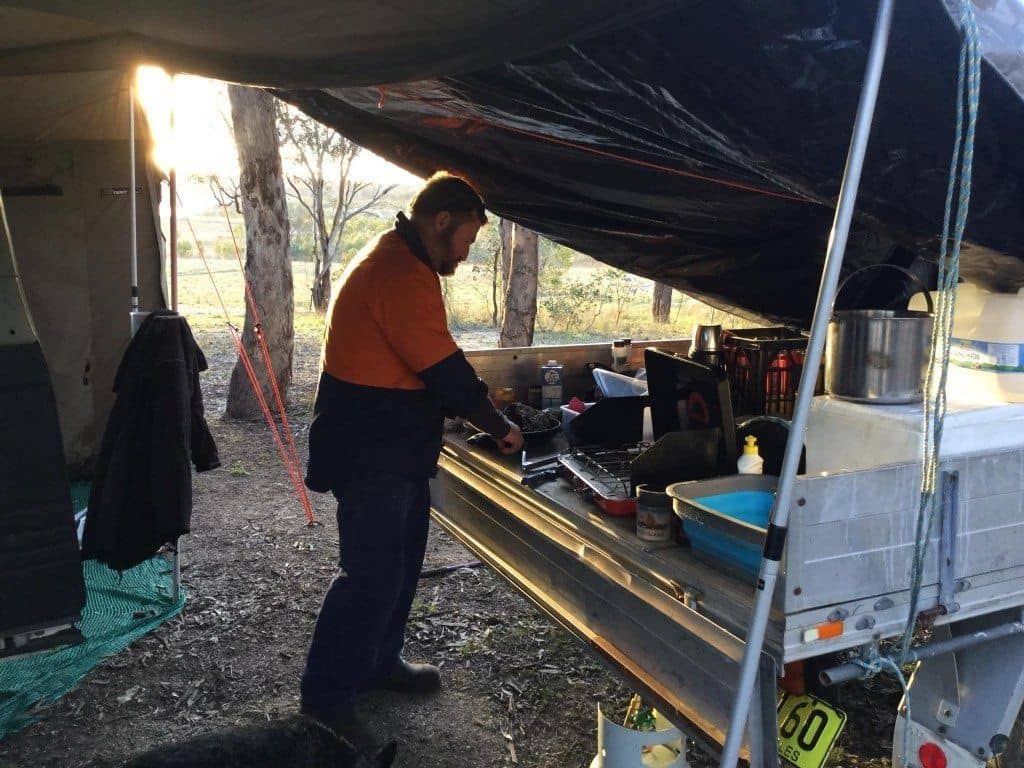
We almost always free camp or budget camp. If we aren’t free camping, we’re budget camping. By budget camping we’re aiming for $20 per night or less. If you don’t like free camping or are not set-up to be self sufficient, then the reality is you’re accommodation expenses are going to be much larger than ours, especially if you’re aiming to stay in caravan parks.
For a family of five to stay in a caravan park, we generally would be looking at paying from $35 (this would be a very cheap park) right through to $120+ per night. It’s really difficult to afford long term travel if required to pay an average of $100 per night for a family.
There is nothing wrong with caravan parks just know this option costs more: Caravan parks have their place, we were always staying in caravan parks before we chose to do some long term travel. Caravan parks are the perfect place for families to stay on holiday. Caravan parks are a wonderful way to take an enjoyable break from the rigours of free camping and enjoy wonderful facilities. Some families are able to budget to stay in caravan parks as part of their journey. For us, we just couldn’t afford it.
There is often tension between long term travellers and caravan park owners. I wish it wasn’t the case, but it occurs because there’s often a lot of pressure forced upon councils in certain areas to close free camping areas so that people stay within caravan parks only. What generally happens in this case is that families and travellers either bypass the area all together or stay only a day or two and move on instead of staying longer and spending more money in town.
There needs to be a balance, and you need to make the choice that is affordable for your family. Setting yourself up to be able to free camp before you leave, will make your travels cheaper in the long run.
Keeping Food Costs Low When Travelling Australia With Kids
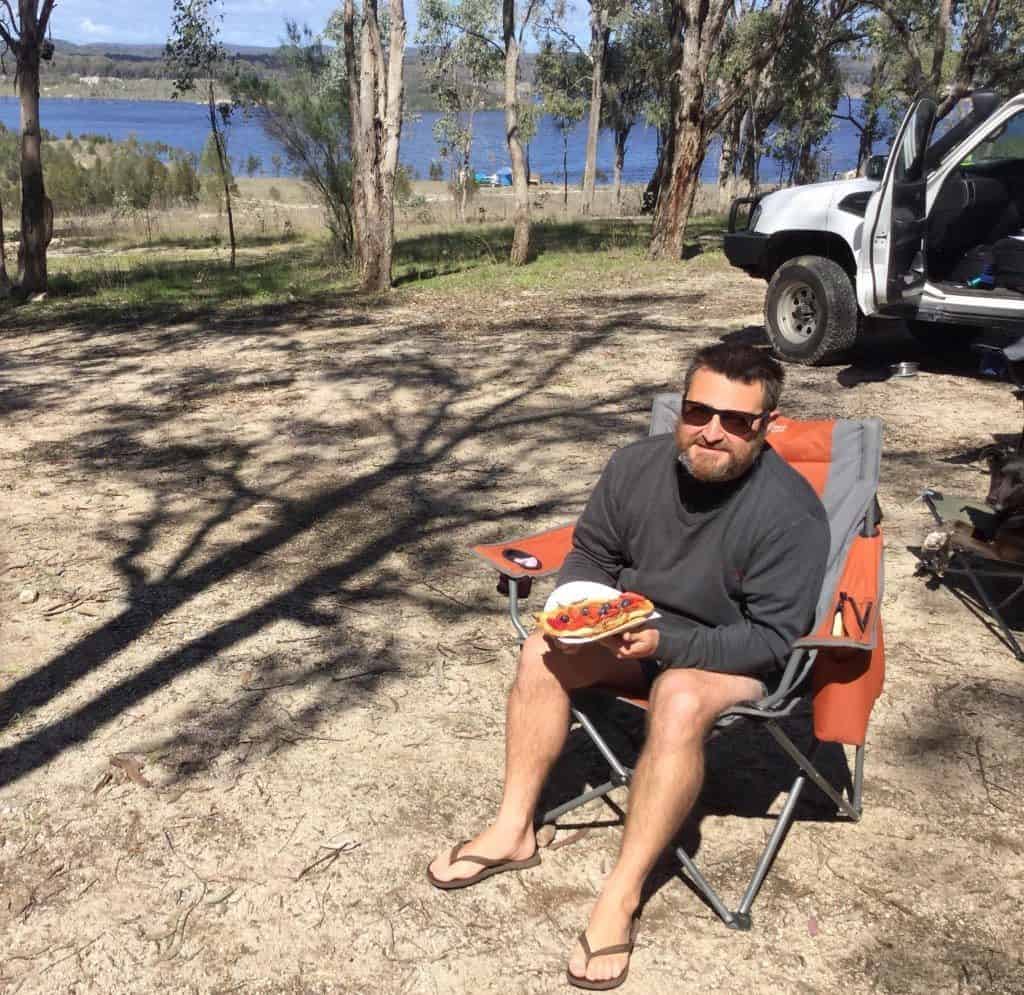
The trick to keeping food costs low when travelling Australia is planning! Planning your food and meals helps you to not only cut down on the expense of the food you buy; it also helps you to minimise any food wastage. There are several points to consider when it comes to food:
- Larger towns and centres will mean cheaper food bills, it’s a good idea to stock up on non-perishables when you’re in areas with access to cheaper food prices.
- Getting creative with staples will help keep your food bills down. Things like rice, pasta, coconut cream, tinned fish, tinned tomatoes and other tinned veggies, flour, sugar and salt will help you rustle up a great meal even when other ingredients aren’t readily available.
- Take advantage of regional produce. While not everywhere in Australia is a food producing region; many of the areas you visit will provide access to beautiful fresh produce directly from the farm gate. Tasmania has an abundance of boutique food providers and food growers and our food bill there was great – unless you’re in a remote area as I mentioned already, then we had to buy smart!
- Plan your meals and DON’T overcook! You’re not going to have the storage space you’re used to in a house, and you won’t have access to a giant fridge either; this means that storage space for leftover is limited! When you do have leftovers, be sure to eat them for the next meal or at the latest the next day, often caravan and camp fridges can struggle so it’s best to eat them quickly and do be sure to re-heat thoroughly.
- Don’t Eat OUT!! Eating from cafe’s or takeaway stores will eat into your travel budget! Pack your lunch, take healthy snacks and only drink water out of a drink bottle you carry with you. This alone will save you thousands of dollars that are better spent elsewhere!
Other Tricks For Saving Money When Travelling & Keeping Costs Down
Don’t go to every attraction you come across: If you saw a zoo or a wildlife centre in the last town, really think about whether you need to visit one at your current stop. Some attractions are well worth the extra expense, some however will be a bit repetitive. Usually you will find free or gold-coin donation entry at local museums and historical centres which will often be a whole lot more beneficial for learning and understanding the region.
Keep Gas Stocked Up in Larger City Centres: We got stuck paying over $40 for a gas bottle refill in a remote area because we just didn’t realise there would be such a big price difference. We could have filled it up for $25 only 50kms before! It was a mistake we didn’t make twice.
Visit Visitor Information Centres For Discounts: Not only do visitor information centres offer a wealth of local knowledge, you’ll also find visitor booklets on display and you’ll often be nicely surprised by the number of coupon vouchers on offer! Any saving is a saving that helps you travel further!
How Much Do You Spend Travelling Australia?
There are so many variables for the cost of travelling around the country that your experience may well differ from ours. Have you got any tips for our readers on how much it costs to travel or how to save money while on the road? We’d love to hear it, just leave a comment below.
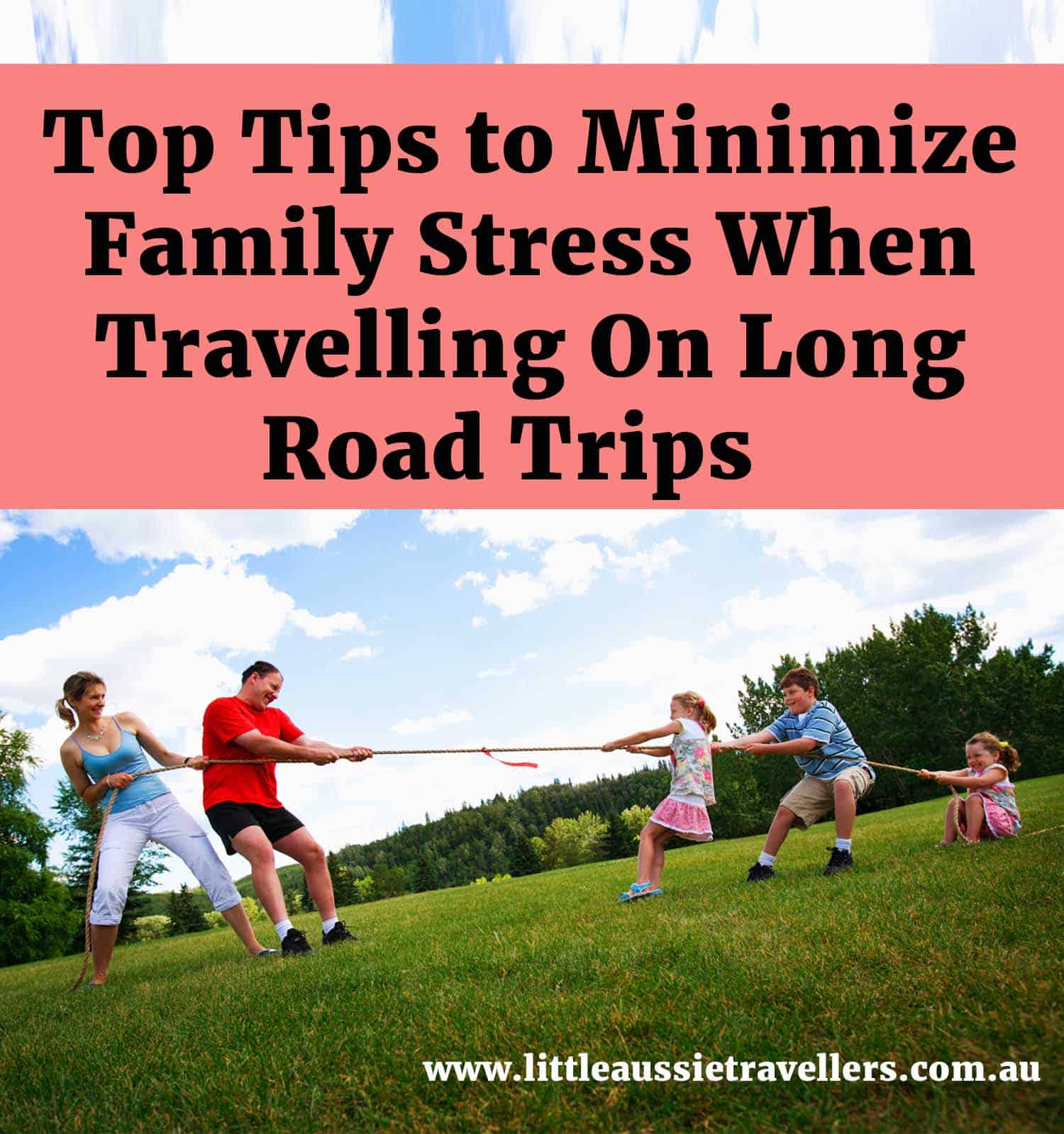
by Loreena Walsh | Family Travel, Featured Posts
We get questions about this all the time. After months, or years of planning for their dream of travelling Australia with kids, the first few weeks of the journey could be described as little more than hellish. Constant fighting, tiredness, kids won’t do schoolwork, adults can’t stand to look at each other, nobody will pull their weight, men are grumpy, women feel unappreciated. Makes you want to plan your family travel around Australia right now doesn’t it?
Possible Causes of Tension for Travelling Families?

Let’s take a look at this shall we? Your entire world has just changed, the kid’s entire world has just changed.
- The environment is constantly changing.
- Nobody knows what the new ‘rules’ are for this new life.
- The accommodation is way more restrictive than a house; there’s no locking yourself away in your bedroom to escape each other.
- There’s packing up and setting up, a stressful experience in itself.
- Hours of driving to get to new destinations.
- Often the family diet goes through some changes.
- Schooling changes to something new & unknown.
- Homesickness happens, especially during tense and stressful times.
- There’s normally restricted ability to relax or tune out activities like watching television or playing video games, because power and electronics are much more restricted when travelling on the road.
- You have to get to really know each other as a family; not just exist together.
- There is NO HIDING from problems that existed before you hit the road.
Do NOT Despair, Family Travel Is Worth The Tough Times!
So, I’ve just shared the most common reasons for why there’s so much tension in your new travel lifestyle, and it may sound overwhelming. If you haven’t left to travel yet, it may be causing you to doubt heading off at all.
I promise, that although your trip around Australia may challenge you as a family; it is going to make you stronger, closer and create memories that will enhance your life in a way that isn’t possible any other way.
We get emails, and questions via our Facebook page asking if other people argue, is it normal, what can be done to fix it, and the answer is YES!
Most people we speak to have suffered the struggle of getting used to their new lifestyle. Generally at the beginning of the adventure, tempers are short, patience is thin, and it seems as though nobody will ever be happy about being on the road, but that just isn’t true.
Arguments are common, frustration is common and a feeling of uncertainty and even regret are all commonly reported by families who are starting their life on the road.
It does get better, and we’re going to take a look at what you can do to make travel as a family less stressful.
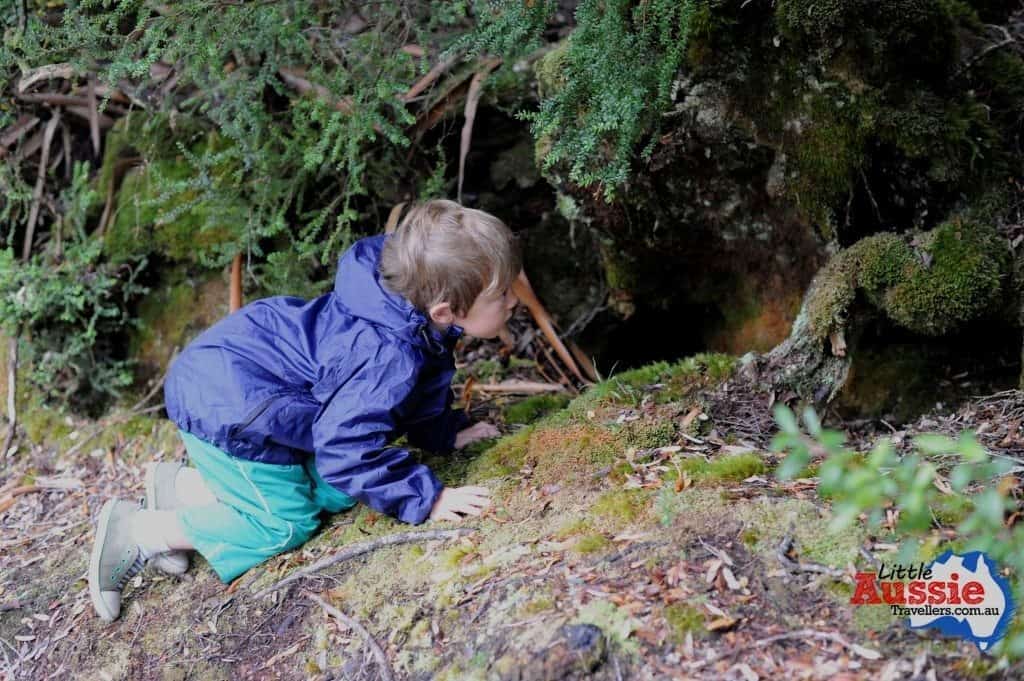
Strategies to Decrease Stress Related to Family Travel
So, now you know it’s ok to stress and feel tension, because truly, it happens to everyone; you want to know how to decrease the problem right?
Here are our top tips for keeping things stress free and happy on the road:
Allow at least 4-6 weeks to settle in to your new lifestyle. Adjustment takes time, and it’s OK if everything doesn’t feel perfect right away.
Find a nice place and stop for a while. The faster you move, the more stressful your travel is likely to be. If things are feeling tense, then find a lovely campsite and stop. What are you rushing for anyway? This time is meant to be spent bonding, getting to know each other better and enjoying your surroundings. Rushing helps no-one, so take in the surrounds, do some exploring and put some roots down for a short while; it can make all the difference.
Join in happy hour. For parents on the road, it can seem a constant battle to maintain healthy adult relationships. Get dinner sorted early, or have something easy, that way when all the child-free travellers are enjoying happy hour together (which normally happens around family dinner time in campsites) you’ll be able to join in too and share stories.
Talk it out! Unlike life at home where everyone could disappear into their own world, life in a camper or caravan doesn’t allow for dodging confronting emotions. Get things out of the way, sit down and talk honestly about what’s irritating you, how everyone else feels and make a plan to move forward feeling positive.
Have some alone time: This one can be tough, but if you like to read, make some time to do that. Like to visit the shops and there’s some handy then do a solo shopping trip. Go for a short walk, have a swim, whatever it is that will give you some inner peace, make time for it. This is really where parents need to work together to give the other time for a break. It really does make all the difference with being able to handle the more stressful events that travelling will throw at you.
Cut each other some slack: We all go into travelling with expectations of what it will be like and how ‘it’ will look. Chances are actually being on the road may look very little like your imagined trip of a lifetime. That is OK! Breathe, relax and let everyone find their sweet spot for travelling. If your children are older they may be missing friends, cut them some slack, let them call to say hi. If school work seems to do little but spark arguments, take a couple of days off, resentment won’t achieve anything positive anyway.
Be Flexible: This is possibly the most important tip of all. Travel should be about adventures and togetherness, not strict schedules and deadlines. Learn to be flexible, if everything isn’t perfect it doesn’t matter, if you’re late it doesn’t matter, if you need to stay an extra day or three somewhere it doesn’t matter. Let go of your preconceived ideas and enjoy what is, because it will be over before you know it.
Do you have any tips for easing stress for long term travel? Did you have a bumpy start?
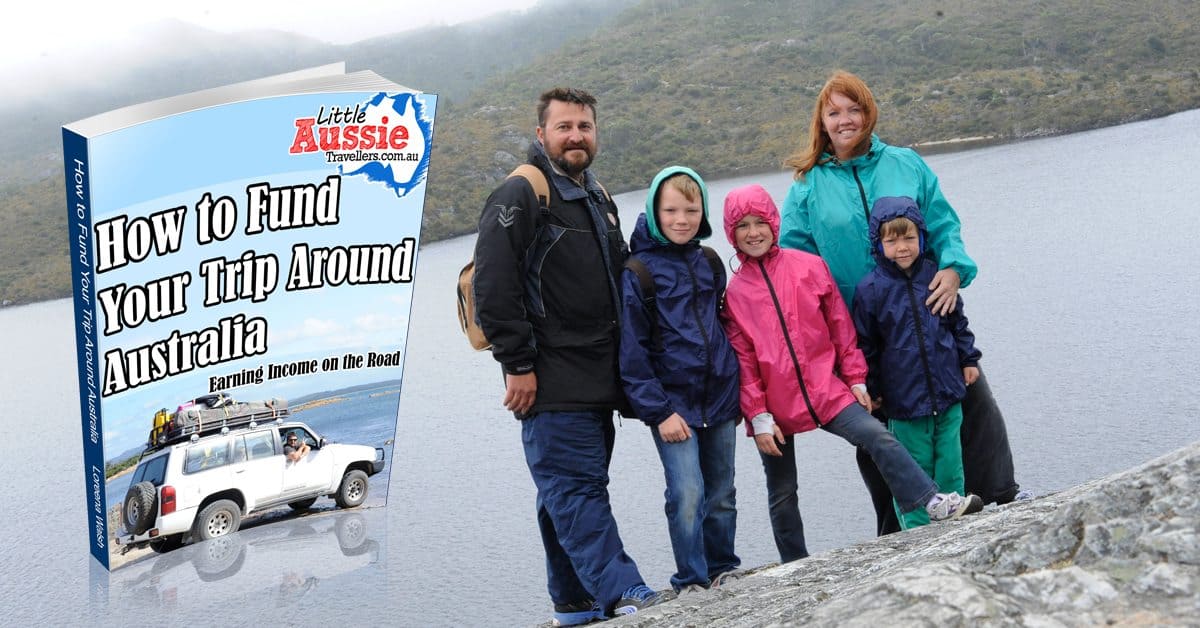
by Loreena Walsh | Featured Posts, Trip Planning
Self sufficiency when travelling Australia is made possible through having the capability to carry plenty of drinking water, having enough fridge space to carry and keep perishables, having enough battery power to recharge devices, run lights and fridges, and generally having enough solar power, or a generator to keep the batteries healthy and topped up.
Being self-sufficient and having the ability to stay in free camping or budget camping areas will save you more money than anything else on your trip. If you are relying on caravan parks for the entire trip, then it is possible to pay more in site fees per week than you would to rent a 3 bedroom home, especially when there are some caravan parks charging over $80 per night for a family to stay on a powered site. Even the average cost of around $45 per night for a family camp site can eat into any income or savings fast.
That is not to say that caravan parks are not to be enjoyed, there are some amazing parks out there that provide a great space for travellers and families. For some people, staying in a caravan park is ideal for them, and the way they prefer to travel, and there is no right or wrong way to plan your lap around Australia, it’s just reality that to stay in caravan parks every night is going to cost you a lot more than to choose free camping options where possible.
Most families tend to do a mix of both, especially in the areas where free camping isn’t an option. While setting up with these extras may feel like an expense you don’t need when trying to save for your trip, the price of preparing for free camping before you leave is much less than the extra expense of long term caravan stays.
In order to make the most of free camping where possible we have:
- Porta-potti & pop up shower tent.
- 2 x 100Ah Batteries in the caravan
- 200w solar panels for the caravan
- 40w solar panel for the car
- 1 x Deep cycle in the car plus our main starter battery
- 60 litre water tank in the car
- 82 litre water tank in the caravan + spare 20l drum.
- 60 litre Fridge in the car.
- 90 litre Fridge in the caravan
- 800w generator
By making the choice to include all of the above in our travel set-up, we have allowed ourselves the flexibility to camp for extended periods without relying on powered campsites or caravan parks. A couple of thousand dollars in set-up expense will be quickly repaid in saved campsite fees; trust us!
This post is an excerpt from our book “How to fund your trip around Australia” if you’d like to know more about making the most of life and hitting the road, head over to our store and grab your copy now.
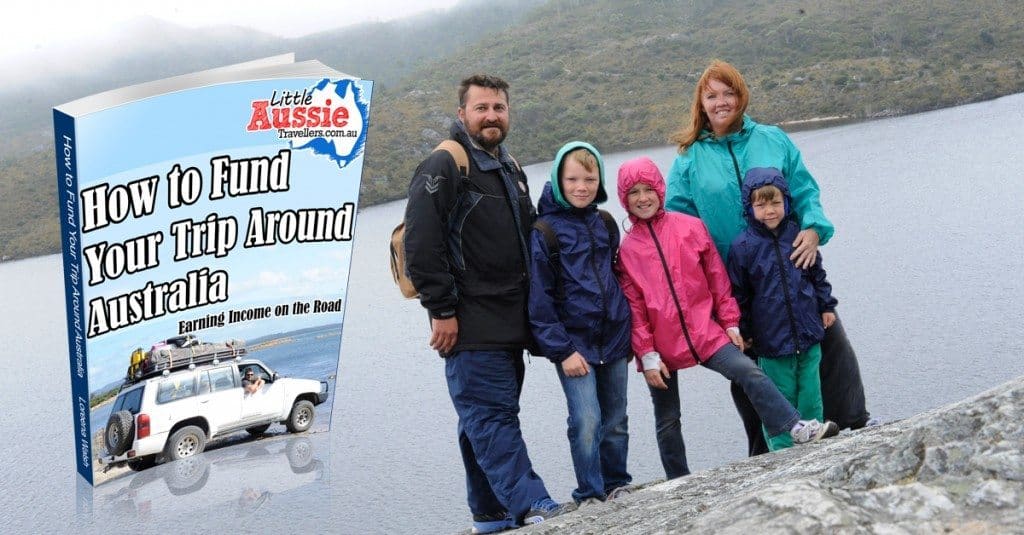
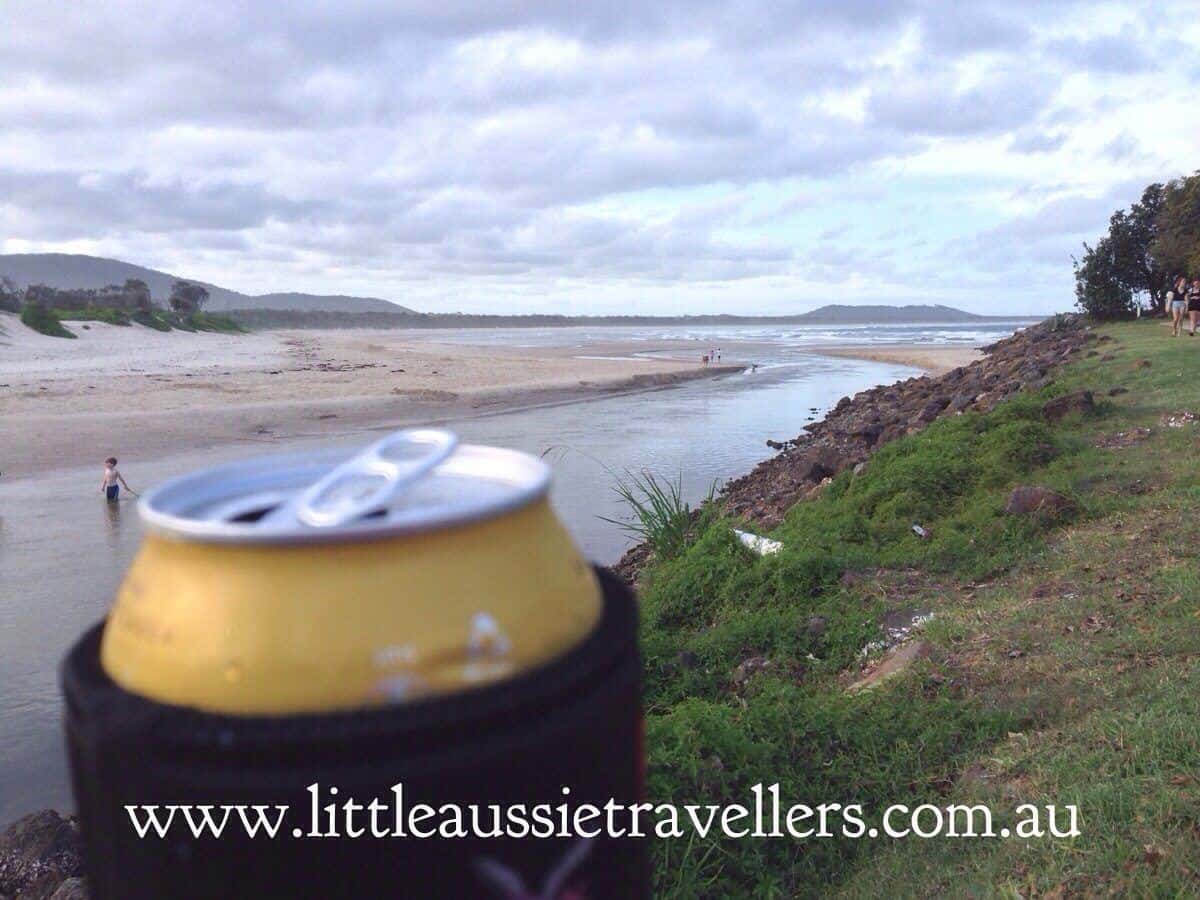
by Loreena Walsh | Featured Posts, NSW Destinations & Activities
Sometimes, you need to leave a place to realise just how special it is; and it’s not that I didn’t always love Crescent Head, but when you live in an area like the Mid North Coast of NSW, you tend to take it for granted.
So, while we’ve been home doing the caravan renovation, Crescent Head has become a little haven for us. Somewhere we can escape for some family time, get some relief from the heat, and take in the awesome coastal views and kick back enjoying the outlook while the kids enjoy the creek.
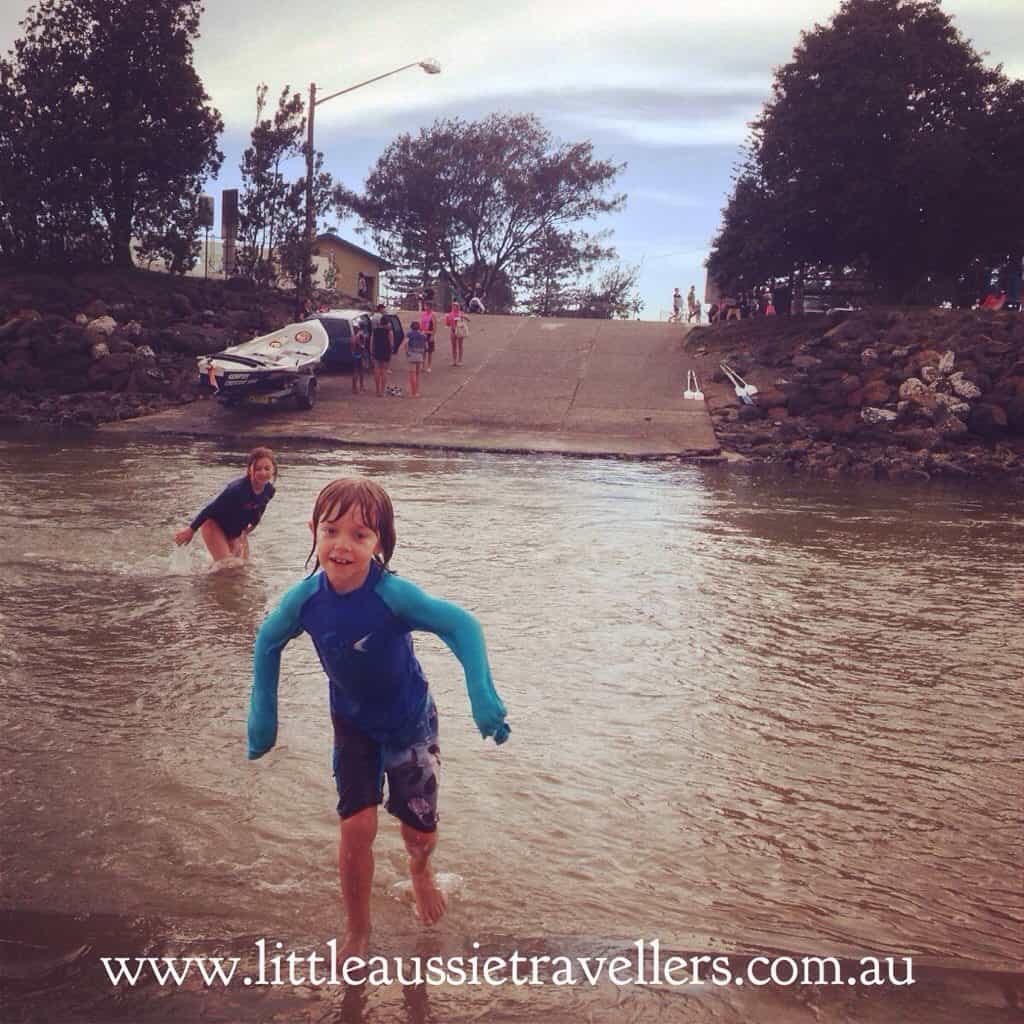
Things to do in Crescent Head.
If you’d like to enjoy a beer or wine with a great view, there’s the tavern or the golf club, there’s great rock pools. If you’re looking for a camp ground, then there’s the super convenient caravan park right on the beach, or you’ve got Racecourse camp ground, Delicate Nobby or Point Plomer camp grounds that are all great too, with differing facilities.
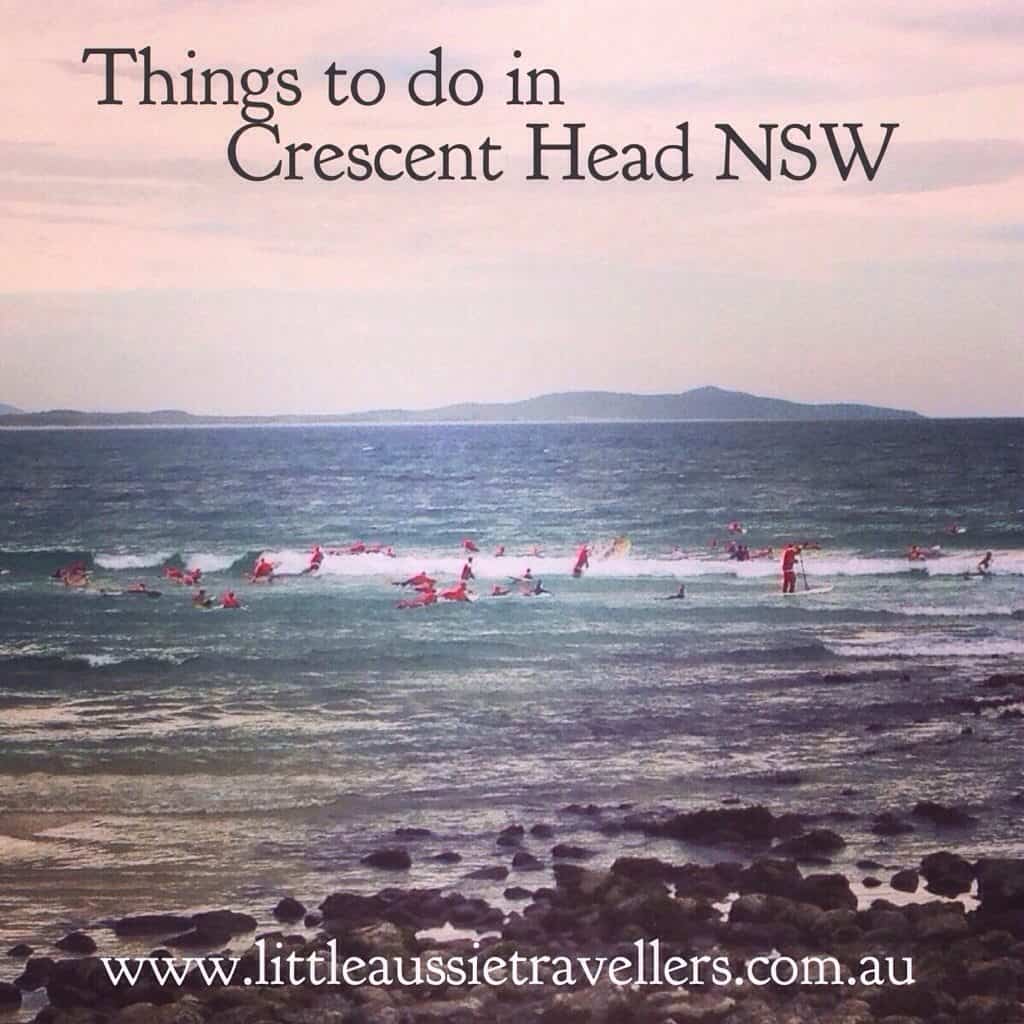
It’s worth heading to Big Hill to do the rainforest walking track. Spend a couple of hours and enjoy the beautiful views from the headland. To get there head along Point Plomer road until you get to Big Hill, which should be about 15 kms, and the walk leaves near the picnic area.
We had lots of fun watching the Santa Surf on Christmas Eve, and if you’re ever in the area over the Christmas period then it’s definitely a must-see! Great atmosphere and lots of fun. I think we might even let the kids participate if we’re back again for Christmas.
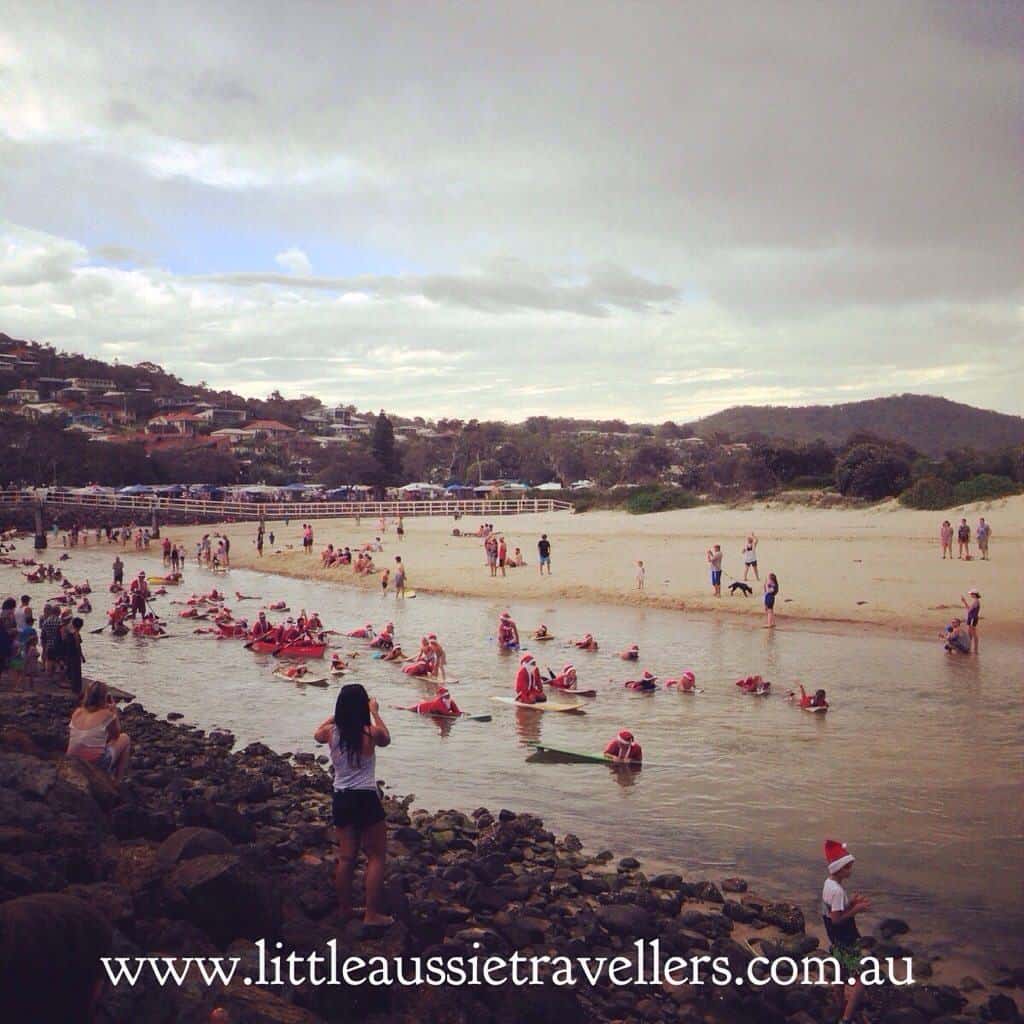
You can spend your time fishing, surfing, swimming and just relaxing. There’s always a great friendly atmosphere in town, and don’t forget to follow the road up through the houses to the water tower where you can look out.
Facilities Near Crescent Head.
You’ll find everything you need in town, there’s a small supermarket and all supplies you will need for camping or a day trip. Kempsey is close by with major supermarkets and Big W and Port Macquarie is about a half hour drive south with major shopping complexes, movie theatres and more beaches.
Really, if you’re after some time out, in a beautiful, peaceful part of the coast, where there are secluded natural wonders just waiting to engulf you in peaceful, sun-filled bliss, then a visit to Crescent Head should definitely be high on your list of priorities. I really think we’ll miss it when we leave the area again soon.
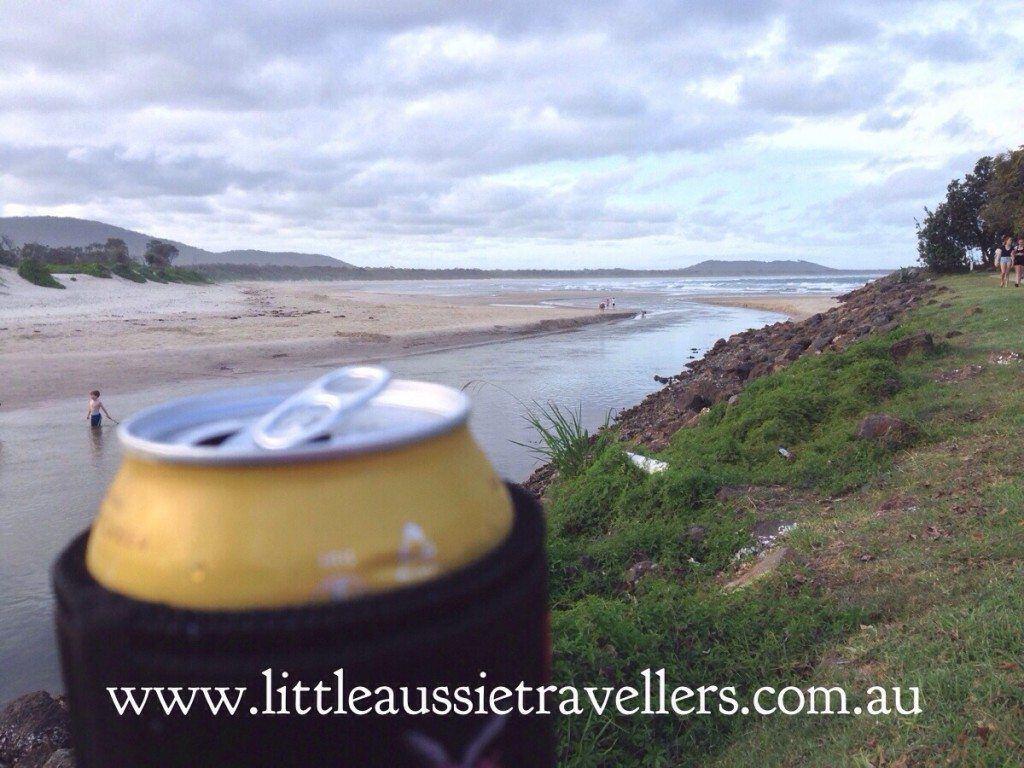

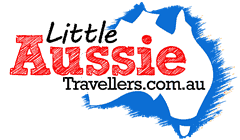


 After we’d been on the road for around six months, Matt’s dad called, as he needed some respite. Matt’s grandmother developed severe dementia, it progressed quite rapidly, and so, instead of continuing on our way, we needed to stay put and help care for her.
After we’d been on the road for around six months, Matt’s dad called, as he needed some respite. Matt’s grandmother developed severe dementia, it progressed quite rapidly, and so, instead of continuing on our way, we needed to stay put and help care for her.

















